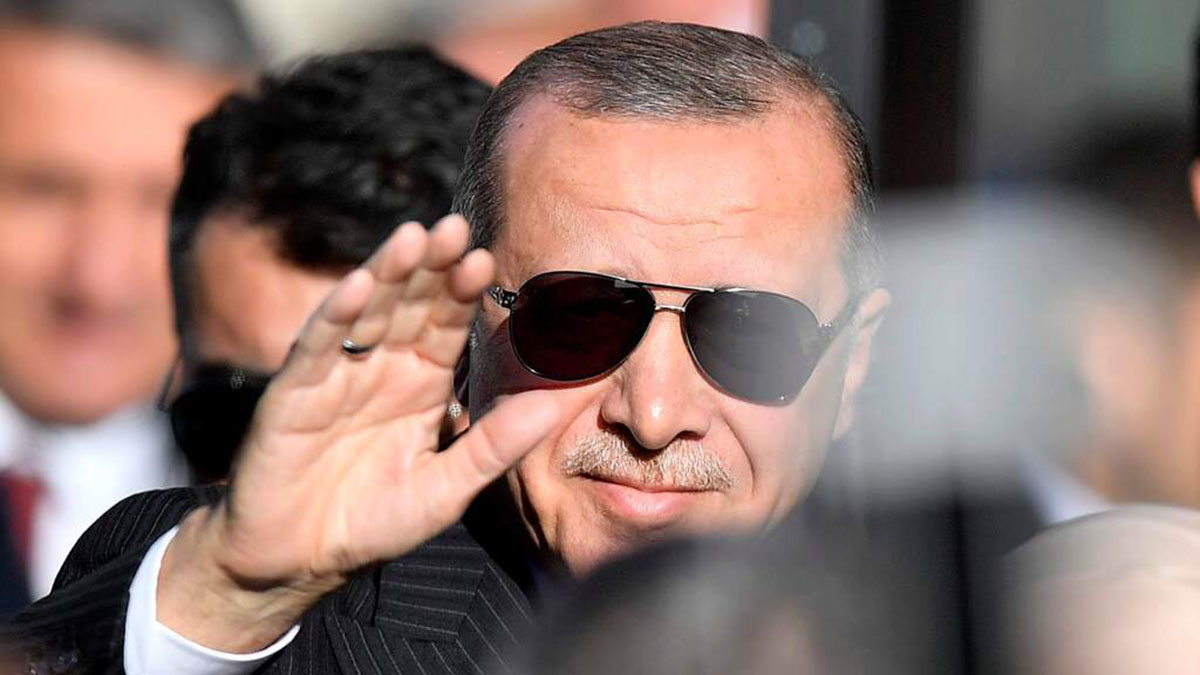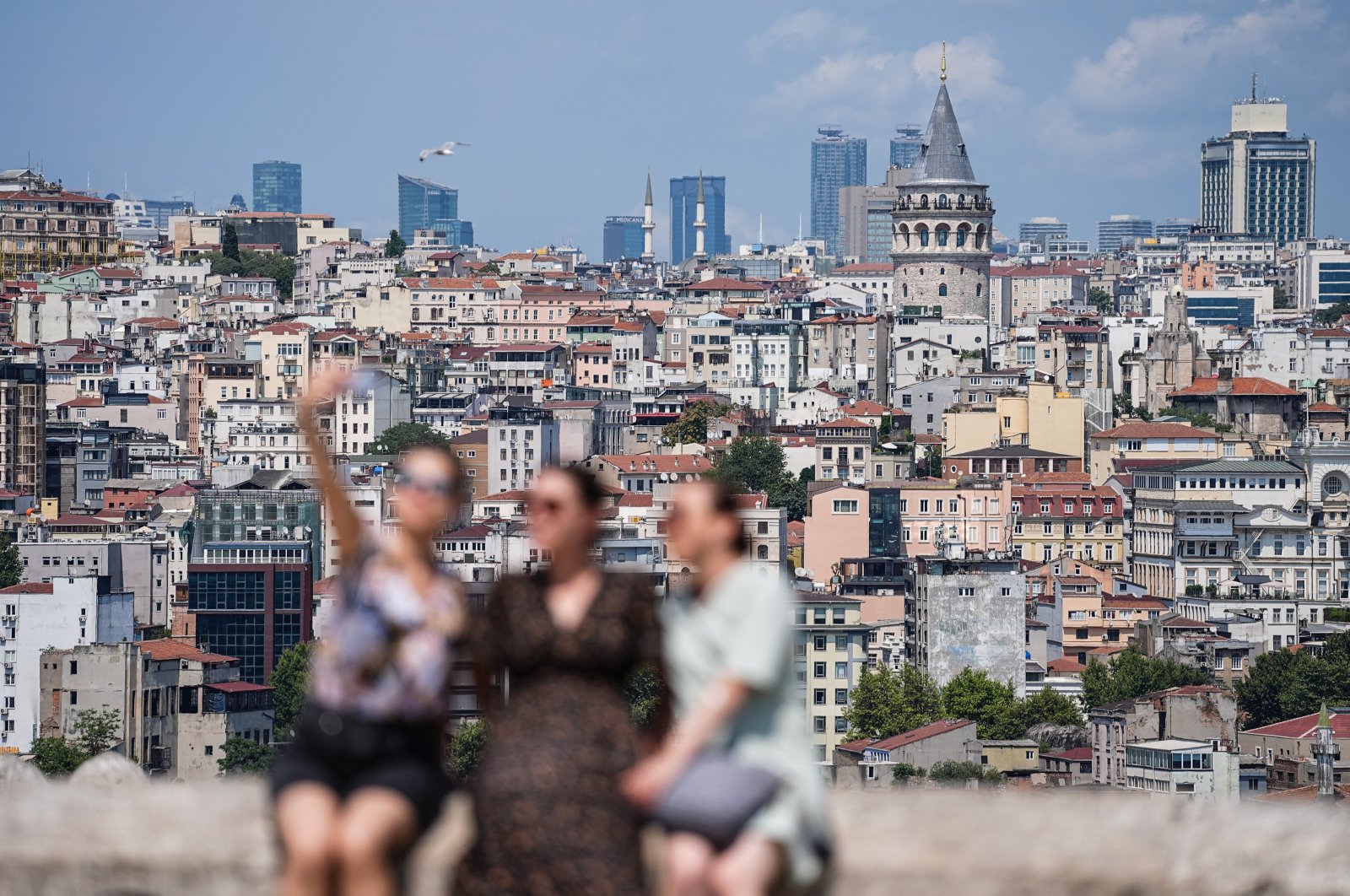If Turkey arms Pakistan, should India help the Kurds?
(File) Turkish President Recep Tayyip Erdogan. AP
Recep Tayyip Erdogan has been Turkey’s most consequential leader since Mustafa Kemal Atatürk founded the country a century ago out of the ashes of the Ottoman Empire. While analysts often cite Erdogan’s consolidation of dictatorship and promotion of political Islam at home and abroad, as consequential is the domestic development of an arms industry that Turkey exports in pursuit of his ideological objectives.
When Erdogan came to power in 2002, Turkey’s domestic industry provided 20 per cent of the country’s military needs; today, it provides more than 80 percent. Turkey produces its own ships, and is testing the TAI Kaan, a stealth fighter that may be partially built upon F-35 schematics that the Turkish government has refused to return to the United States following its expulsion from the programme. Turkey’s most prominent domestically produced platform is the Bayraktar TB2 drone.
The marriage of Erdogan’s youngest daughter Sümeyye to Selcuk Bayraktar, the chief technology officer of Baykar, the family business that manufactures the Bayraktar TB2, augments the prestige of Turkey’s growing military industry. Erdogan keeps a tight grip on Turkish policy, and relies on family even more than party. Baykar is family.
While the United States, Europe, and the United Nations prioritise diplomacy and seek to resolve problems through dialogue and discussion, Erdogan prefers to use Turkey’s arms exports to advance his ideological aims.
In November 2015, Turkish security officials arrested and later sought to assassinate Can Dündar, editor-in-chief of Turkey’s main centre-left daily Cumhuriyet after its journalists photographed the transfer of Turkish weaponry to Al Qaeda factions in Syria.
Azerbaijan used Turkish (and Israeli) drones and Turkish Special Forces stormed the mountaintop city of Shushi during the 2020 Nagorno-Karabakh War that began the ethnic cleansing of the Armenian-populated region.
In recent years, as neo-Ottomanism has floundered due to the simple fact that Turks remember the Ottoman Empire much more fondly than its subject peoples, Erdogan has turned to Africa. On November 3, 2021, for example, Somali security officers confiscated parts for six drones at Mogadishu’s Aden Abdullah Airport and arrested two Turkish engineers sent to assemble the aircraft. Zakaria Mahmoud Haji, a parliamentarian from Puntland, said he purchased the drones for agricultural purposes. Somalis know Zakari more for his Islamist extremism and alleged links to contract killings. Today, Al Shabaab, Somalia’s Al Qaeda-affiliated group, likely would not exist if it did not enjoy Turkish and Qatari financial and military support.
Turkey also exported drones to Ethiopian Prime Minister Abiy Ahmed at the height of his genocidal campaign against Tigray. As international mediators sought to end the Libya civil war, Erdogan quietly shipped drones and other weaponry to Libyan Islamists, while transporting Libyan mercenaries to Nagorno-Karabakh to use against Armenian Christians.
During its October 7, 2023 assault on Israel, the greatest single day slaughter of Jews since the Holocaust, Hamas used Turkish drones. Indeed, Hamas’ Izz ad-Din al-Qassam Brigades released a video two weeks later showing three Turkish drones manufactured by Istanbul’s Assuva Defense Industry.
Simply put, in terms of export of militant Islamism, Turkey is to the 21st century what Saudi Arabia was to the 20th century. The difference between the two is that while Saudi Arabia limited its support to money, Turkey has the means to directly export weaponry as well.
Here, India should be concerned. Pakistan continued to occupy a portion of Kashmir and lay claim to the rest of the Indian Union Territory. While “Palestine” today dominates the rhetoric of Erdogan, other Turkish politicians, and Muslim Brotherhood groups they influence, Kashmir is a distant second. If and when the Hamas conflict ends, especially if it resolves with concessions in Hamas’ favour, Erdogan and the coalition he has assembled will likely turn their sites to Kashmir. While this will mean Indian diplomats will need to be prepared to counter a deluge of propaganda, it also makes more likely that Turkey will augment its material support of and perhaps drone and weapons sales to Pakistan-based terrorist groups. If October 7, 2023 pays dividends for Israel, Indians should expect a similar attack across the Line-of-Control.
Indian diplomats are generally more realistic than their American counterparts. They realise that endless processes do not work against an ideological foe that views diplomacy less as a mechanism for conflict resolution and more as an asymmetric warfare strategy to distract adversaries while seeking to win through arms what they cannot win via popular opinion or international law.
The best way to deter Turkey from catalysing a new wave of Pakistani terror, therefore, might be to consolidate relations with the Kurds.
Turkey considers the Kurdistan Workers Party (PKK) a terrorist group, but there is little consensus about its status. The US designated the group in 1997, more than a decade after the height of its insurgency, but that had more to do with President Bill Clinton’s desire to finalise a hundred plus million dollar helicopter deal. In 2019, Belgium’s highest court deemed the PKK to be “a party in a non-international armed conflict” rather than a terrorist group.
In Syria, the largely-Kurdish Autonomous Administration of North and East Syria, has U.S. support and is the most peaceful region of Syria. When I visit Raqqa, the former capital of the Islamic State, for example, I can walk around without security of any kind. In Kobane, once the site of a vicious Islamic State siege, women and children ride Ferris wheels and roller coasters, and preteen girls laugh and giggle while window-shopping in the rebuilt markets.
Turkey imperils the Kurdish progress in Syria as Erdogan views Kurds through a racist lens and condemns them all as terrorists by nature of their birth. In 2017, Turkish forces and their proxies poured into Afrin, ethnically cleansing its Kurdish majority and establishing Islamic rule. Erdogan openly threatens to do the same to the rest of the Syrian Kurdish region. Adding to the danger is that the Syrian Kurds control al-Hol, the prison in which thousands of Islamic State members are incarcerated. Should Turks end Kurdish rule, Europe and India should be prepared for an influx of terrorists.
Arming the Kurds would not only be morally right, but it would give Turkey pause before they increase the weaponry they already deliver to Pakistan. The Kurds are also natural allies of Armenia, a country with which India already develops a deep partnership, and can augment the corridor India seeks to develop. This will have not only strategic benefits for India, but economic ones as well.
The 21st century challenge for India will be not only to counter Pakistan and China, but also Turkey. As India becomes a superpower, it should calibrate its diplomacy to both face new threats and seize new opportunities to consolidate security interests and expand its commercial reach.
Michael Rubin is director of policy analysis at the Middle East Forum and a senior fellow at the American Enterprise Institute. Views expressed in the above piece are personal and solely those of the author. They do not necessarily reflect Firstpost’s views.
Find us on YouTube
Subscribe

)


